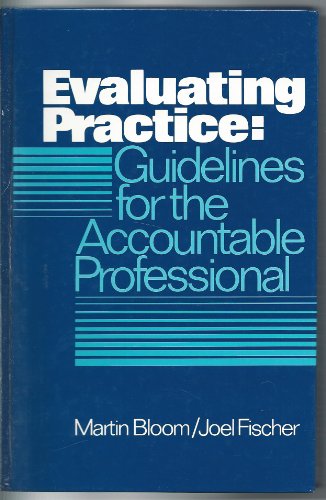Synopsis
This is a revision of the leading evaluation text in the human services. Bloom, Fischer, and Orme's text is seen as the standard work, and the most comprehensive work available. It incorporates both qualitative and quantitative approaches to evaluation, and provides extensive coverage of all aspects of evaluation including conceptualization, measurement, design, and analysis. This new edition includes computer disks by Charles Auerbach, David Schnall, and Heidi Heft Laporte of Yeshiva University, specially created for the book. This program, called SINGWIN, is a user-friendly approach to data analysis, described in an all-new chapter (Ch. 23) on computer analysis. The new edition also contains instructions on an updated Windows-based version of the computer assisted social services program for managing cases, charting and filling out scales. This text is very practical, with clear guidelines for the implementation of the concepts discussed. A number of tables and diagrams as well as numerous case examples help students visualize and understand the evaluation process. Although the authors are best-known within the social work discipline, this text can also be used in other professional programs such as nursing, counseling, psychology and psychiatry. An Instructor's Manual available with the text provides a number of student exercises that can be used in class or as homework assignments, as well as for testing materials.
From the Back Cover
"Evaluating Practice" continues to be the most comprehensive practice evaluation text available. Focusing on single-system designs, "Evaluating Practice," 6"/e" presents clear guidelines on conceptualizing and measuring problems, developing practice-oriented evaluation designs, understanding and analyzing data, and ethical guidelines for practice evaluation. Unsurpassed among human service evaluation texts for bringing clarity to evaluation procedures, "Evaluating Practice "comes with a free CD-ROM featuring numerous programs, including the innovative SINGWIN program for analyzing data (created by Charles Auerbach, David Schnall, and Heidi Heft Laporte of Yeshiva University), and the CASS and CAAP programs (created by Walter Hudson) for managing cases and scoring scales.
"About this title" may belong to another edition of this title.
